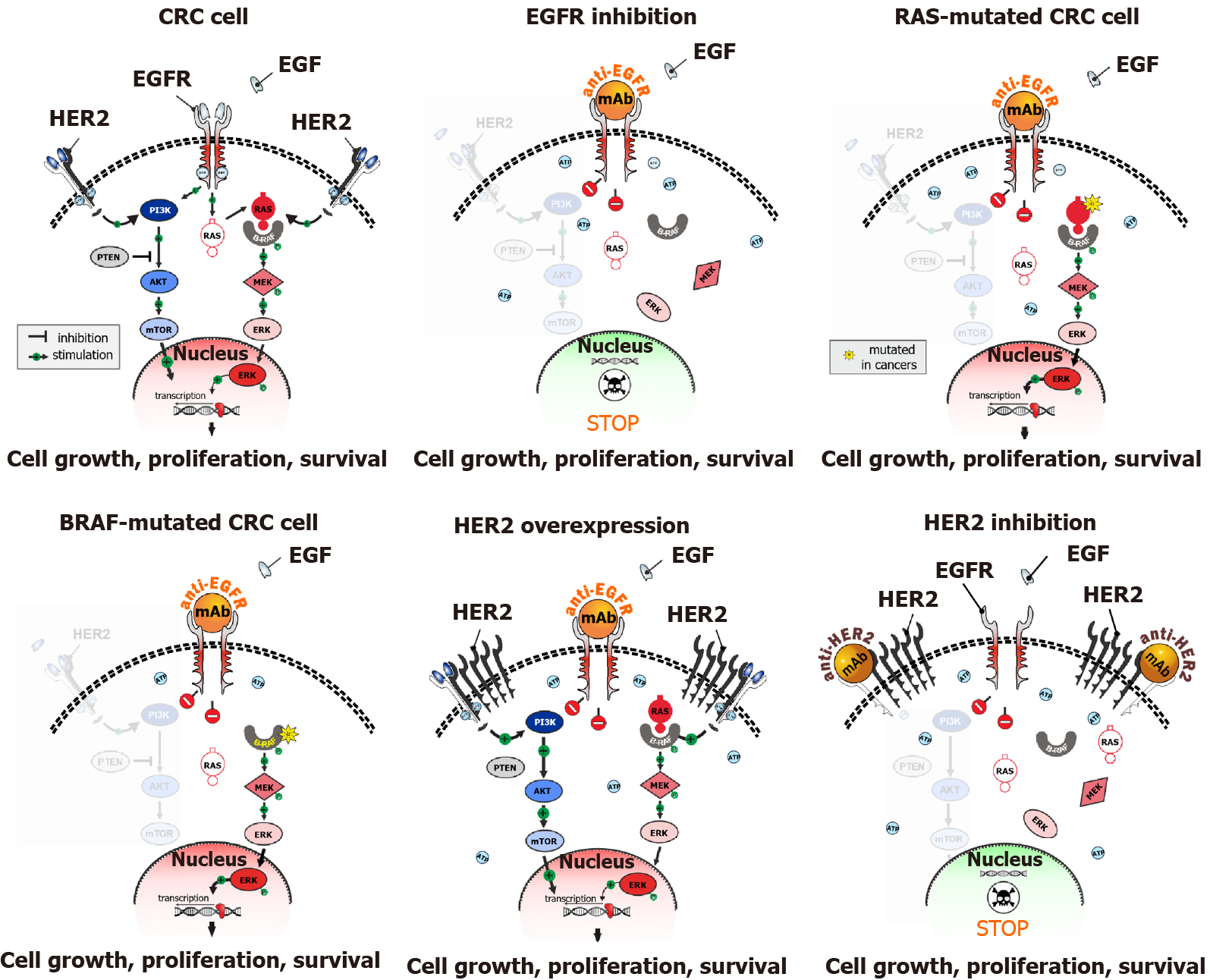Copyright
©The Author(s) 2021.
World J Gastrointest Oncol. Oct 15, 2021; 13(10): 1288-1301
Published online Oct 15, 2021. doi: 10.4251/wjgo.v13.i10.1288
Published online Oct 15, 2021. doi: 10.4251/wjgo.v13.i10.1288
Figure 1 Molecular cascades underlying colorectal cancer responsiveness and resistance to targeted therapy.
Virtually all colorectal cancers (CRCs) are characterized by upregulation of mitogen-activated protein kinases (MAPK) signaling pathway. If MAPK cascade is activated by epidermal growth factor receptor (EGFR) receptor, the administration of anti-EGFR therapeutic antibodies results in the cessation of tumor growth. There are instances of EGFR-independent activation of MAPK pathway caused by mutations in the molecules located downstream to EGFR (KRAS, NRAS or BRAF) or by collateral signaling (e.g., HER2 overexpression); these CRCs are resistant to EGFR blockade, however they may be sensitive to appropriate targeted drugs. CRC: Colorectal cancer; EGFR: Epidermal growth factor receptor.
- Citation: Imyanitov E, Kuligina E. Molecular testing for colorectal cancer: Clinical applications. World J Gastrointest Oncol 2021; 13(10): 1288-1301
- URL: https://www.wjgnet.com/1948-5204/full/v13/i10/1288.htm
- DOI: https://dx.doi.org/10.4251/wjgo.v13.i10.1288









